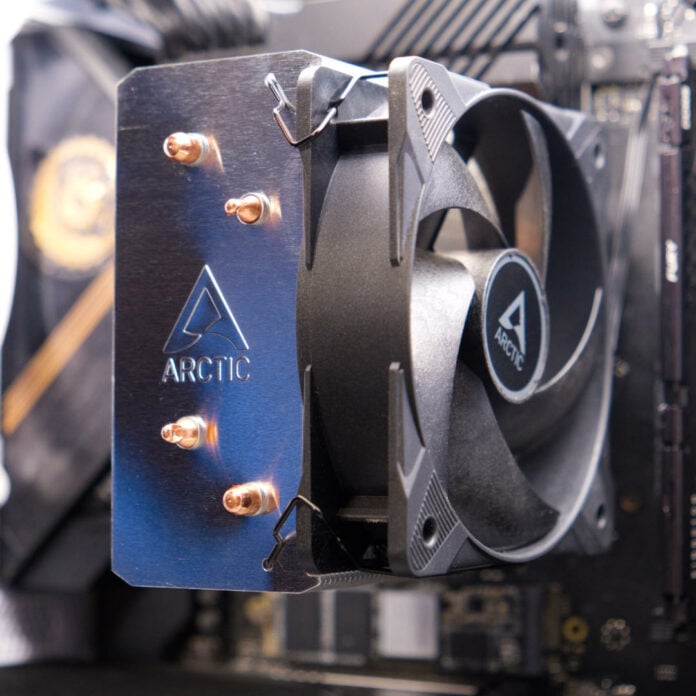Arctic is no stranger to budget air coolers. If you’ve dabbled in affordable builds over the past few years, chances are you’ve come across Freezer 7 X, the pint-sized puncher that comfortably outclassed stock coolers without throwing a haymaker at your bank account. Now, its successor has arrived, and Arctic Freezer 8i comes with a few modern touches alongside its scrappy spirit, from a refined design to tighter socket support and a pinch more cooling clout.
With a svelte stature and price-conscious design, Freezer 8i aims to outclass stock coolers while squeezing into almost any case you throw it at. It’s compact, straightforward, and unapologetically functional – everything you want in a sub-£20 air cooler. The question is: can it punch above its weight, or is it destined to be another placeholder until payday?
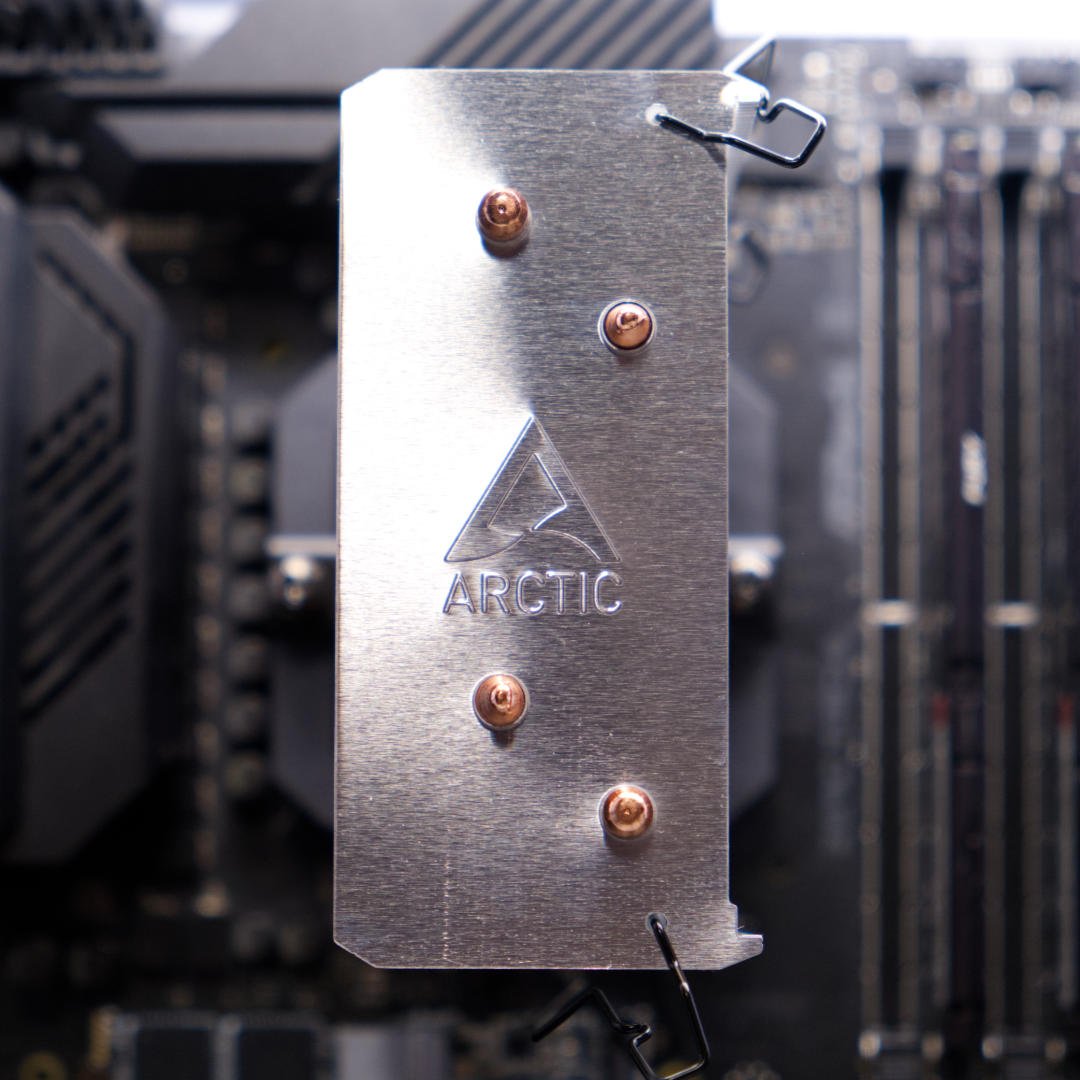

Arctic Freezer 8i
£16.49
Pros
- Great value
- Good single-tower performance
- 6-year warranty
- Simple installation
Cons
- Lacks older Intel support
- Stuck at 153W
Club386 may earn an affiliate commission when you purchase products through links on our site.
How we test and review products.
There are four flavours to choose from. Intel users get Freezer 8i for £16.49, or £17.49 for the continuous operation (CO) variant designed for 24/7 use thanks to a more durable dual ball bearing fan. AMD users can opt for Freezer 8A at £15.99 or its CO sibling at £16.99. All models are otherwise functionally identical, and given these prices, they barely cost more than a decent tube of thermal paste, never mind a fully-fledged cooler.
| MSRP | |
|---|---|
| Arctic Freezer 8A | £15.99 |
| Arctic Freezer 8i | £16.49 |
| Arctic Freezer 8A CO | £16.99 |
| Arctic Freezer 8i CO | £17.49 |
Freezer 8i is exactly what you’d expect from Arctic, which is to say: minimal frills, maximum utility. Standing at just 136mm tall, it’s a blessing for small-form-factor builders or anyone running low-profile RAM. The single high static pressure-optimised 100mm fan hangs on the silver fin stack, and although there’s no RGB to speak of, the whole unit carries that stealthy budget brawler aesthetic that Arctic’s quietly mastered over the years.
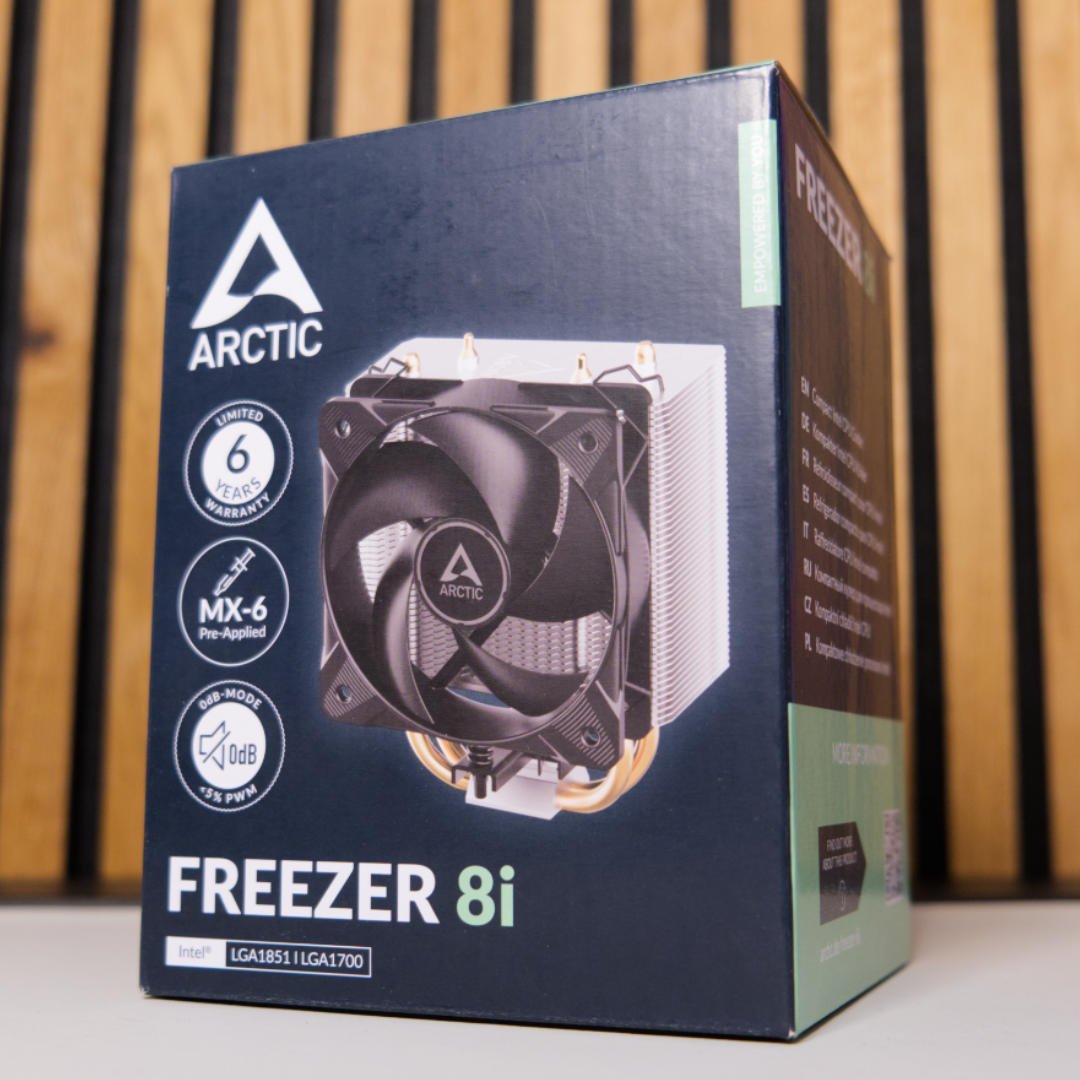
Build quality is reassuringly solid for its weight class, tipping the scales at 415g. You’ll find two serviceable 6mm direct-touch copper heatpipes at the base and 46 aluminium fins stacked above to whisk away heat.
The included P-Fan is PWM-controlled, spinning anywhere between 200 and 2,300rpm, and it can drop to a dead stop when idle if below 5% PWM. That makes it effectively silent outside of load, which, depending on performance could be a real win for noise-conscious builders.
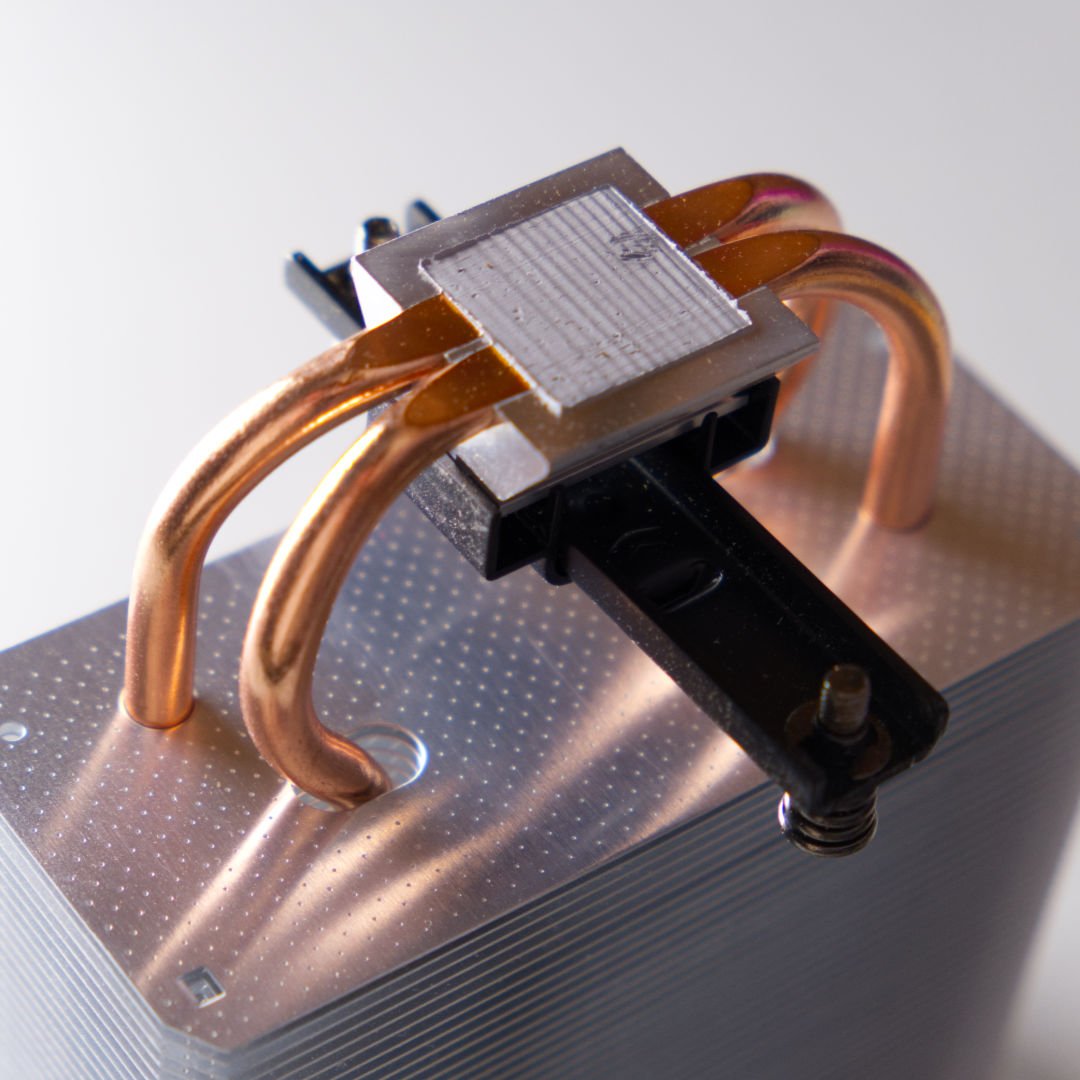
Also of note is Arctic’s superb MX-6 thermal compound, pre-applied from the factory. It’s a small thing, but it means you won’t need to faff about with application. Just pop it on, bolt it down, job done. In the unlikely event that something goes wrong, you’re backed by a six-year warranty.
Installation
Socket-specific designs might sound like a faff, but it makes life easier in practice so long as you know what you’re buying from the outset. Instead of juggling multiple brackets and baggies full of screws, Freezer 8i arrives tailored specifically for Intel LGA1851 and LGA1700 platforms.
If you’re running AMD, you’ll want the Freezer 8A instead to fit on AM4 and AM5 motherboards. This comes part and parcel with an offset slider that lets you better position the cooler to counter Team Red’s hotspots.
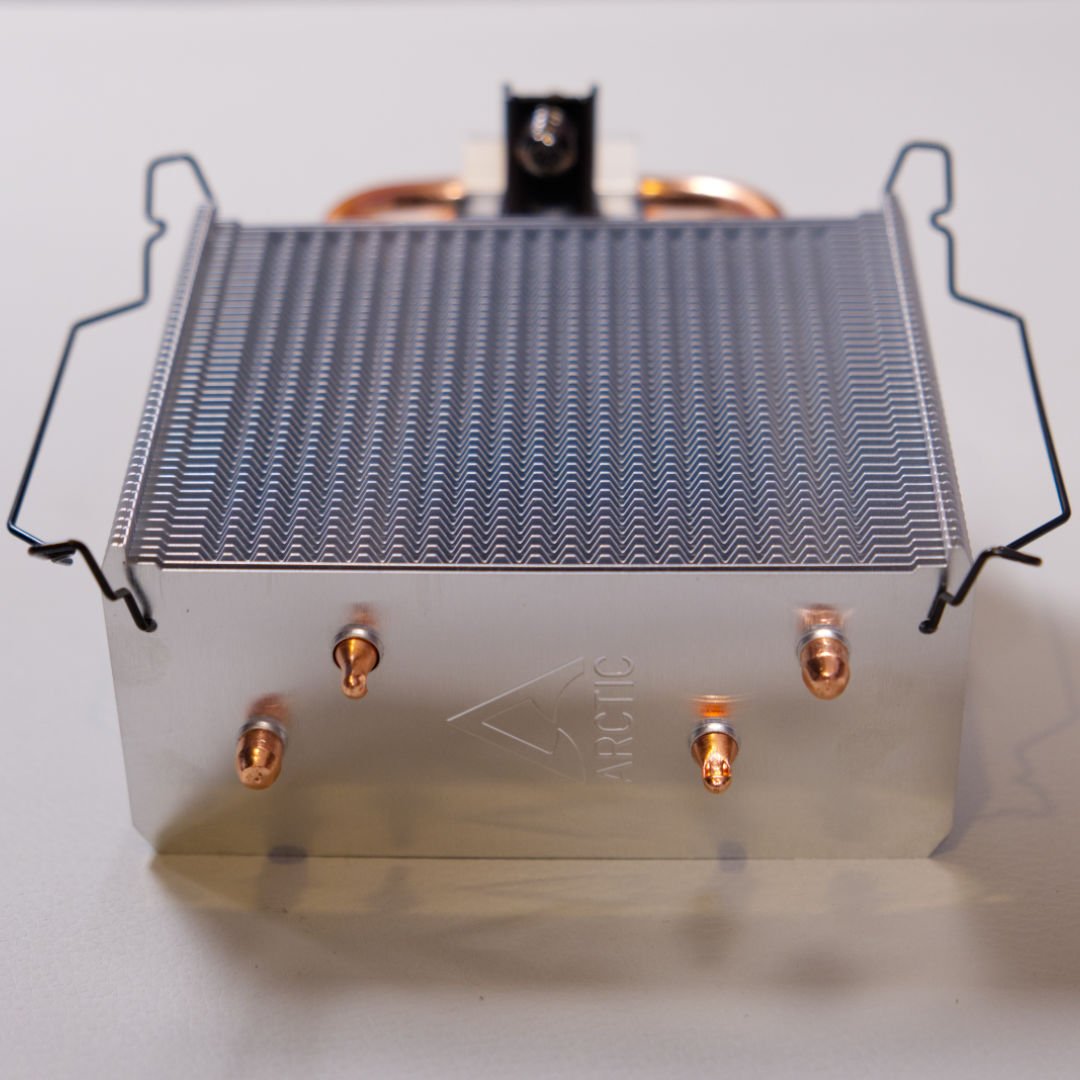
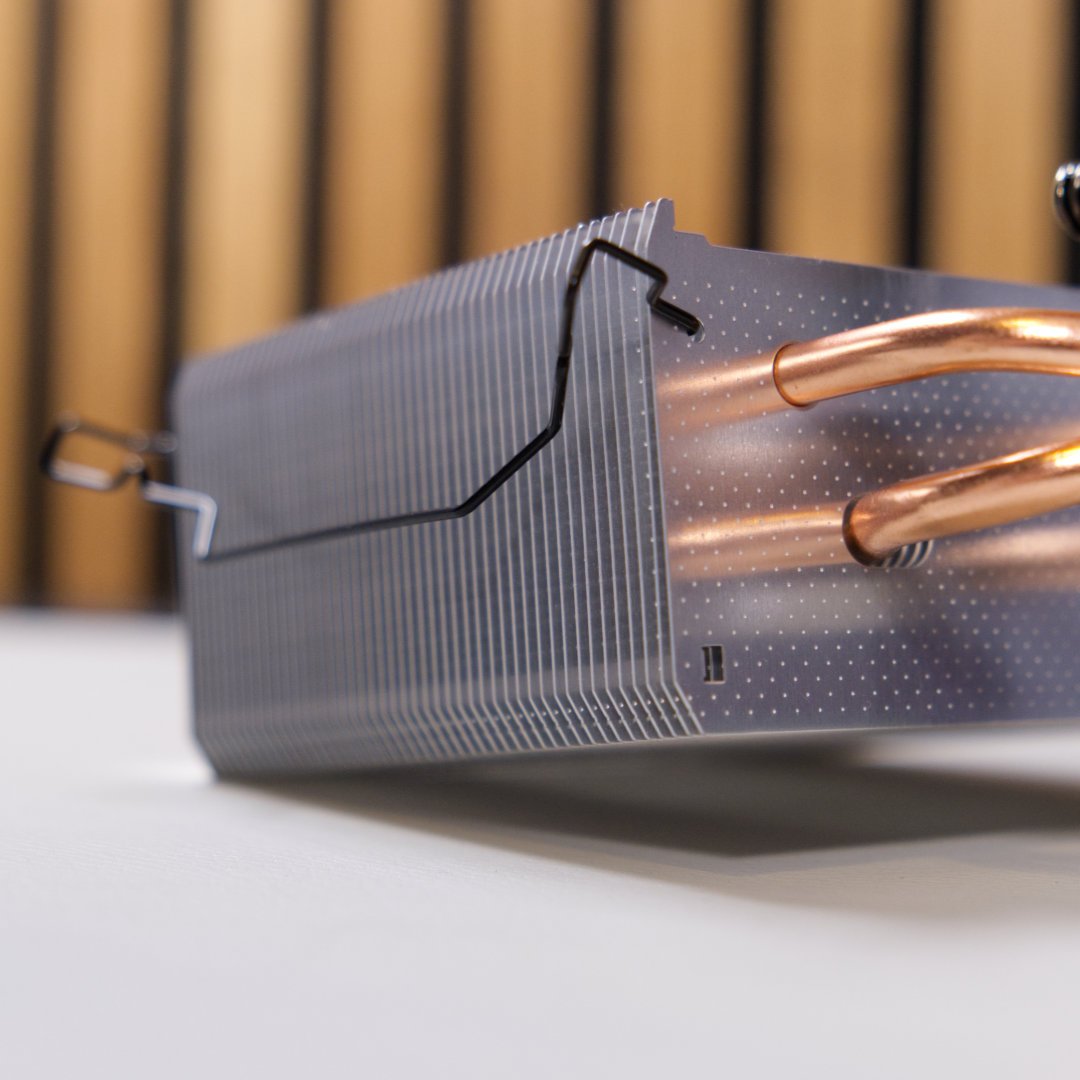
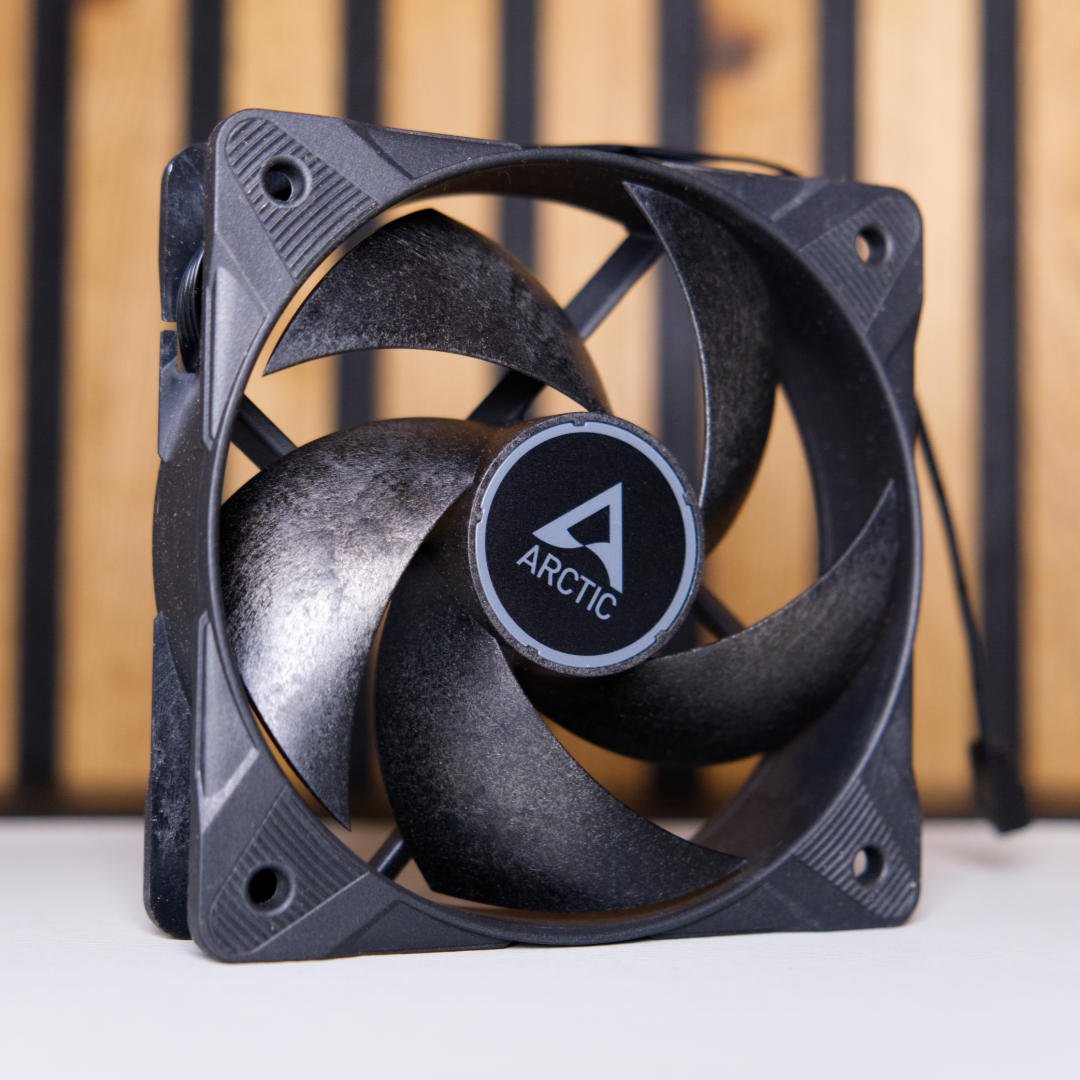
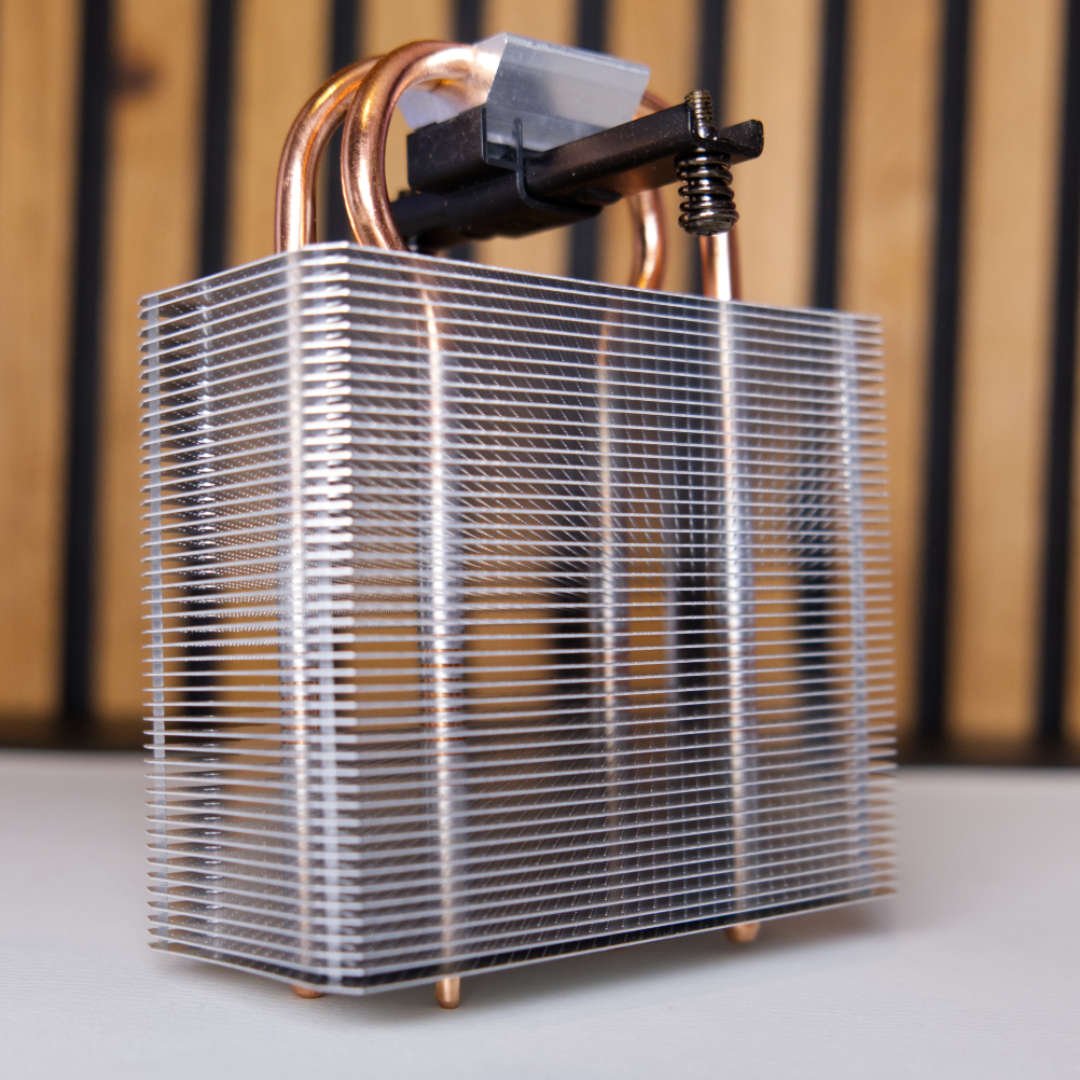

Before you whip out the screwdriver, it’s worth getting the fan clamps threaded into the respective holes and putting the P-Fan to one side. These are actually quite intuitive once in place and I prefer them to the fiddly hooks that be quiet! Pure Rock Pro 3 uses or a rail system like Corsair A115.
Mounting is simple. It uses your motherboard’s backplate for reinforcement, and the brackets slot into place with minimal fuss. Arctic’s manual (or the QR-coded online version, if you’re fancy) guides you through the few steps needed, and the whole process is pleasantly straightforward.
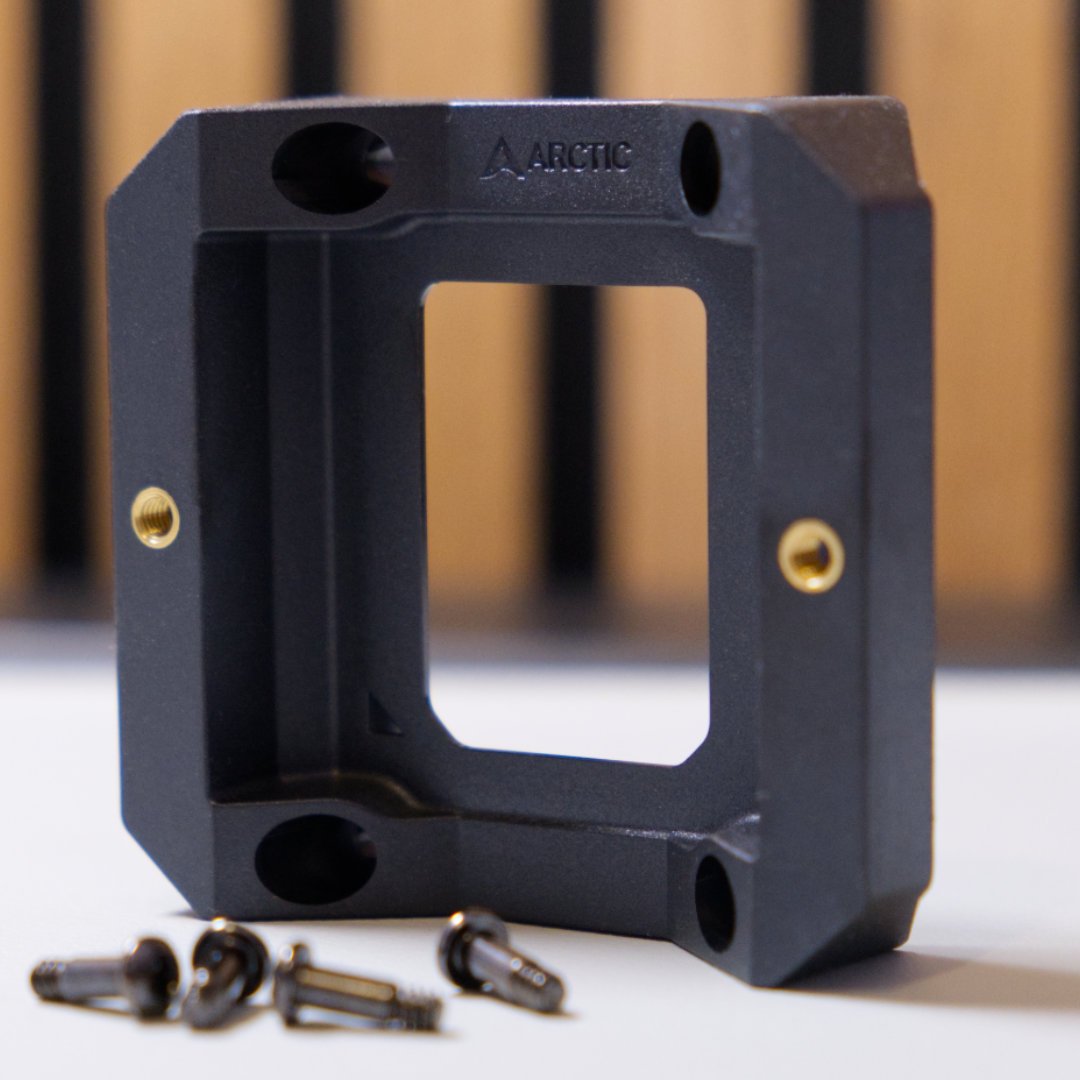
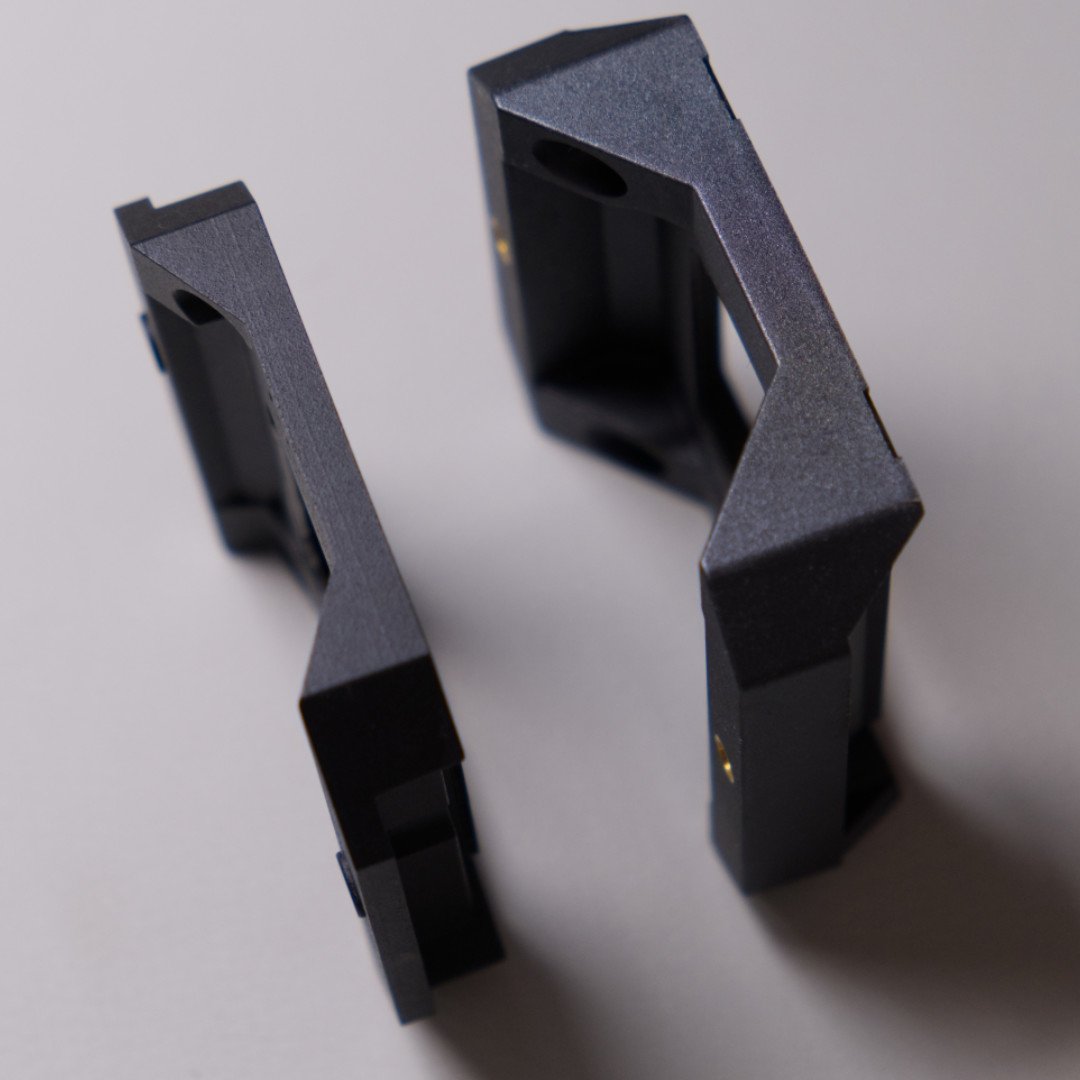
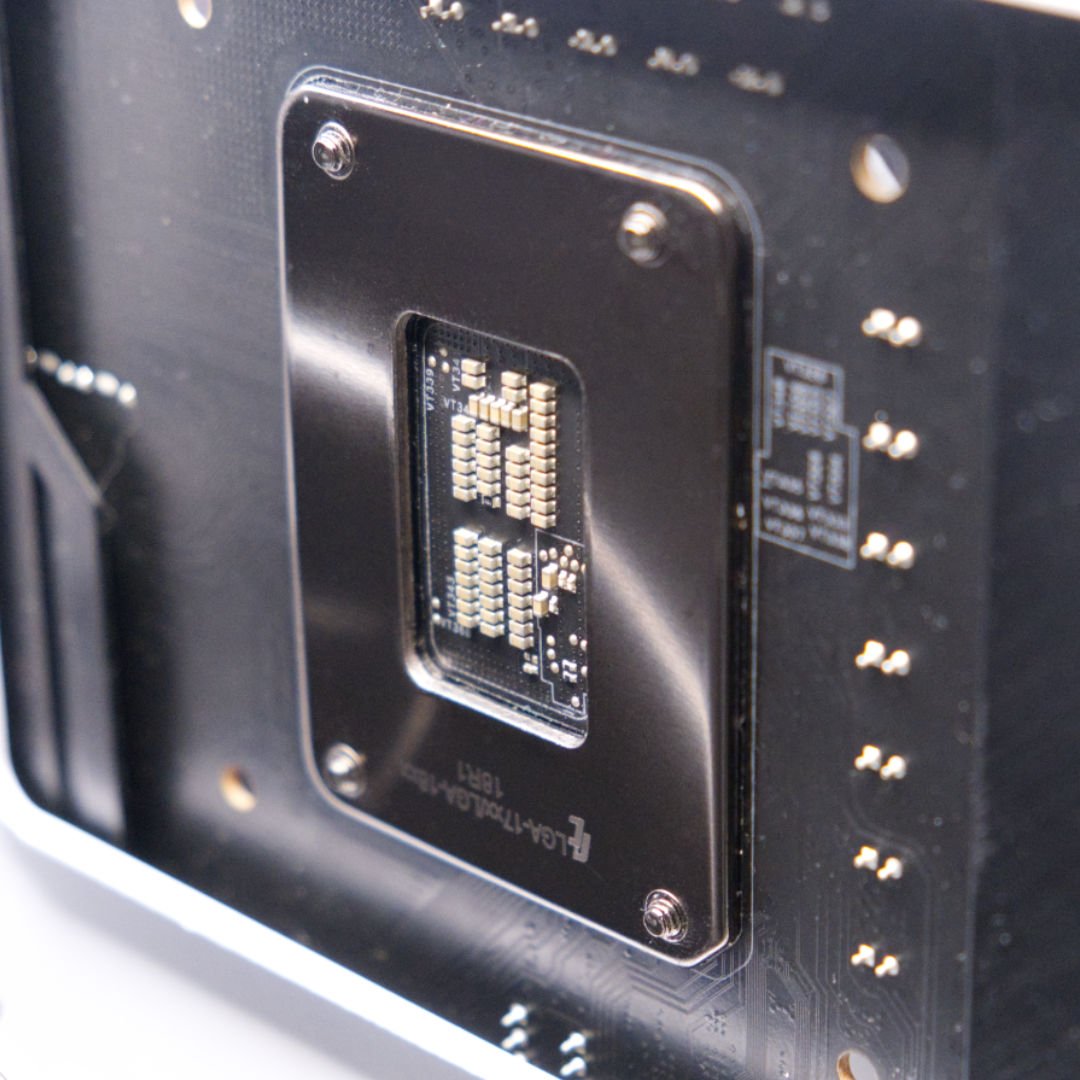
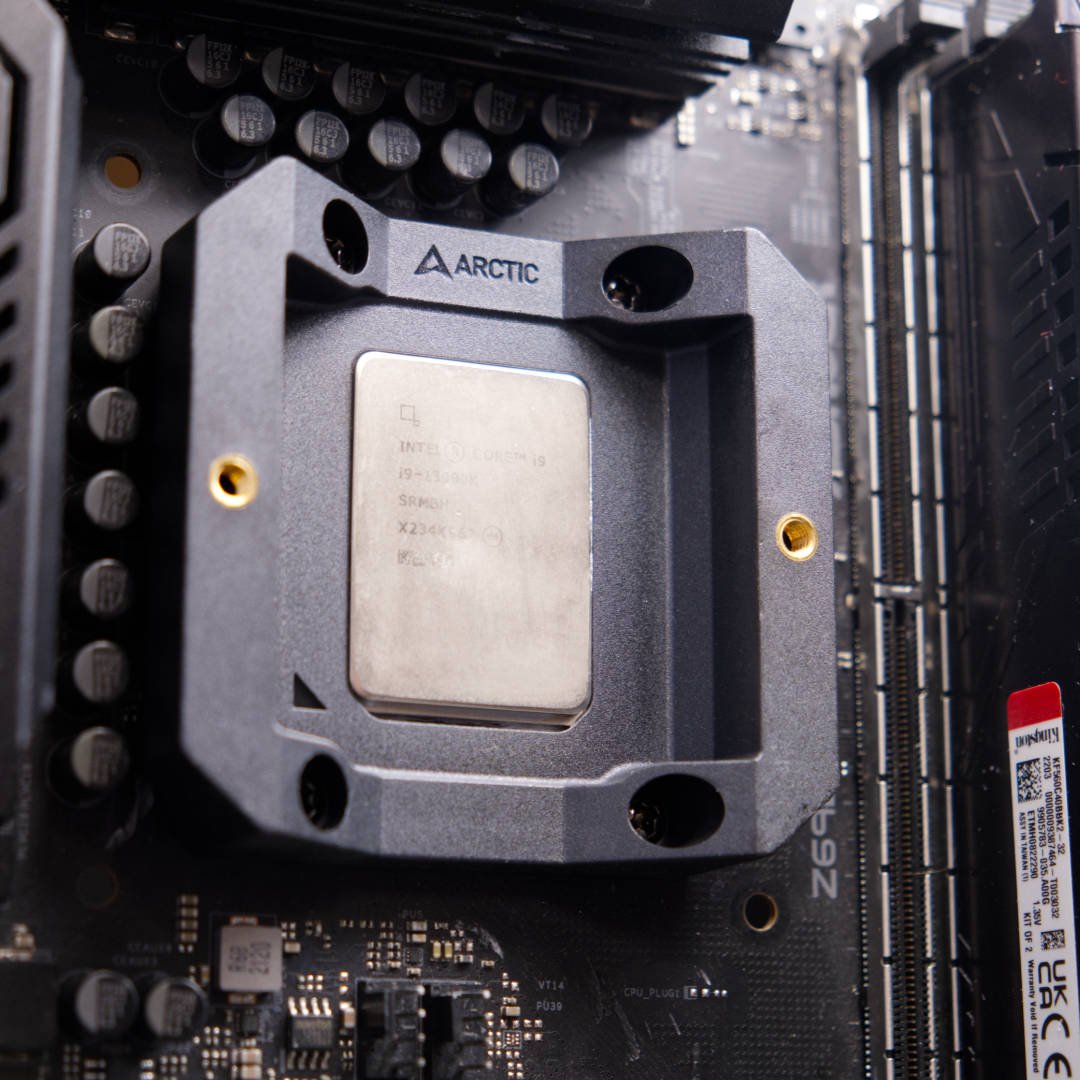
It only takes a few turns to suitably bolt it down. There’s even enough room left once it’s mounted to get your hands around nearby headers and RAM slots – often a gripe with bulkier alternatives. Simply push the top and bottom clip to secure the P-Fan and you’re good to go.
Performance
Pitting Freezer 8i against our usual Intel Core i9-13900K might seem a bit cruel. After all, this is a £16 cooler going toe-to-toe with one of the beefiest processors on the market capable of making even closed loops sweat. Yet Arctic clearly believes its budget box-fighter can take a few rounds, so we stepped into the ring.
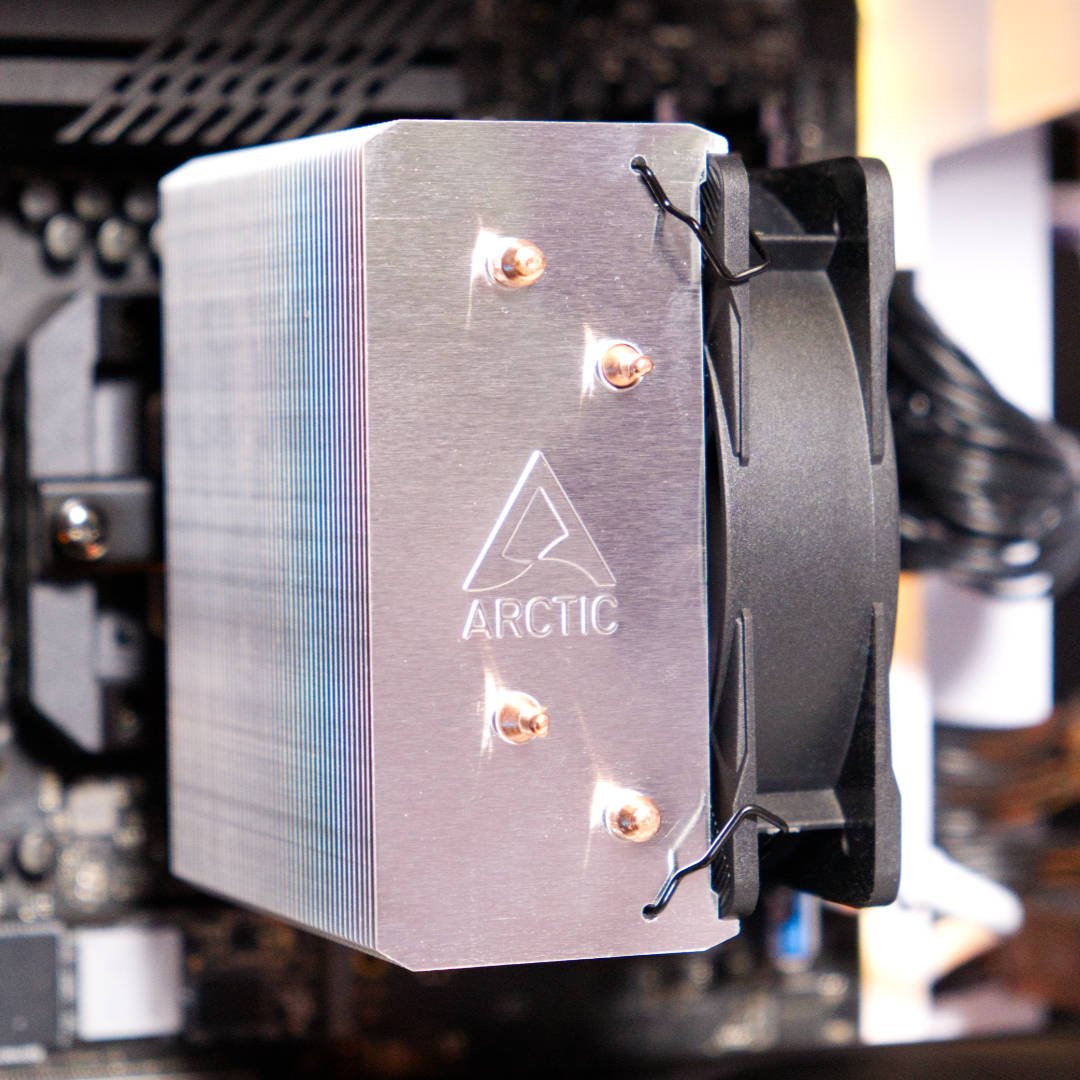
Our standard test starts with a sustained 153W workload using Cinebench to push the CPU to its limits across 600, 1,200, and 2,300rpm (rotations per minute), the latter of which is its maximum. For kicks, we subjected Freezer 8i to our customary 253W overclocked load, but as you might expect, it didn’t go particularly well. Thermal throttling kicked in almost immediately, and the CPU rapidly backed off down to a more manageable 160W load.
This cooler isn’t built for serious tinkering, nor does it claim to be. It’s designed to handle stock loads on sensible CPUs, and in that context, it performs exactly as it should.
Temperatures
| Arctic Freezer 8i | be quiet! Pure Rock Pro 3 | Arctic Freezer 36 | |
|---|---|---|---|
| 153W @ 600RPM | 94.31 | 82.7 | 80.2 |
| 153W @ 1200RPM | 79.6 | 76.9 | 76.3 |
| 153W @ Max RPM | 70.4 | 74.6 | 73.1 |
Even premium air coolers tend to struggle with Core i9-13900K’s eight performance cores at the best of times. Sure enough, Arctic Ffreezer 8i doesn’t buck the trend, as cores four, six, and eight skirted that dreaded 100°C mark when running at lower 600rpm fan speeds. This engages ASRock Z690 Taichi motherboard’s built-in ‘critical temperature’ limit, ramping fans up to full speed in order to control the rising heat. Unavoidable, but generally not representative of the single tower’s capabilities given I’d never recommend running fans so slowly.
Bump the fan up to 1200RPM and temperatures drop dramatically to 79.6°C, placing it within striking distance of the relatively more expensive be quiet! Pure Rock Pro 3 and Arctic’s own Freezer 36. Crank it to full whack and Freezer 8i lands at a respectable 70.4°C, effectively tying with the others despite its slimmer profile and smaller fan.
Noise levels
| Arctic Freezer 8i | be quiet! Pure Rock Pro 3 | Arctic Freezer 36 | |
|---|---|---|---|
| 600RPM | <30.2 | <30.2 | 38.5 |
| 1200RPM | 30.8 | 32.5 | 39.4 |
| Max RPM | 39.1 | 40.6 | 41.1 |
Noise levels tell a similarly favourable story. At idle and low speeds, it’s whisper-quiet in sub-30dB territory and even at 1200RPM, it maintains a tolerable 30.8dB. Only when maxed out at 2,300RPM does the sound begin to make itself known at 39.1dB, but even then, it’s hardly offensive. It’s a commendable showing, particularly when you consider this is the cheapest cooler in the chart by a considerable margin.
My ideal sits between the 1,200rpm and 1,600rpm mark, keeping the system whisper quiet with warmth in check. Having more headroom to push rotations higher is something of a safety net, especially during the warmer summer months that are only going to get muggier.
Conclusion
There’s always space in the market for a no-nonsense budget cooler that just gets the job done. Arctic knows this better than most, and with Freezer 8i, it’s delivered a cooler that outpaces stock offerings and competes admirably with options double the price.
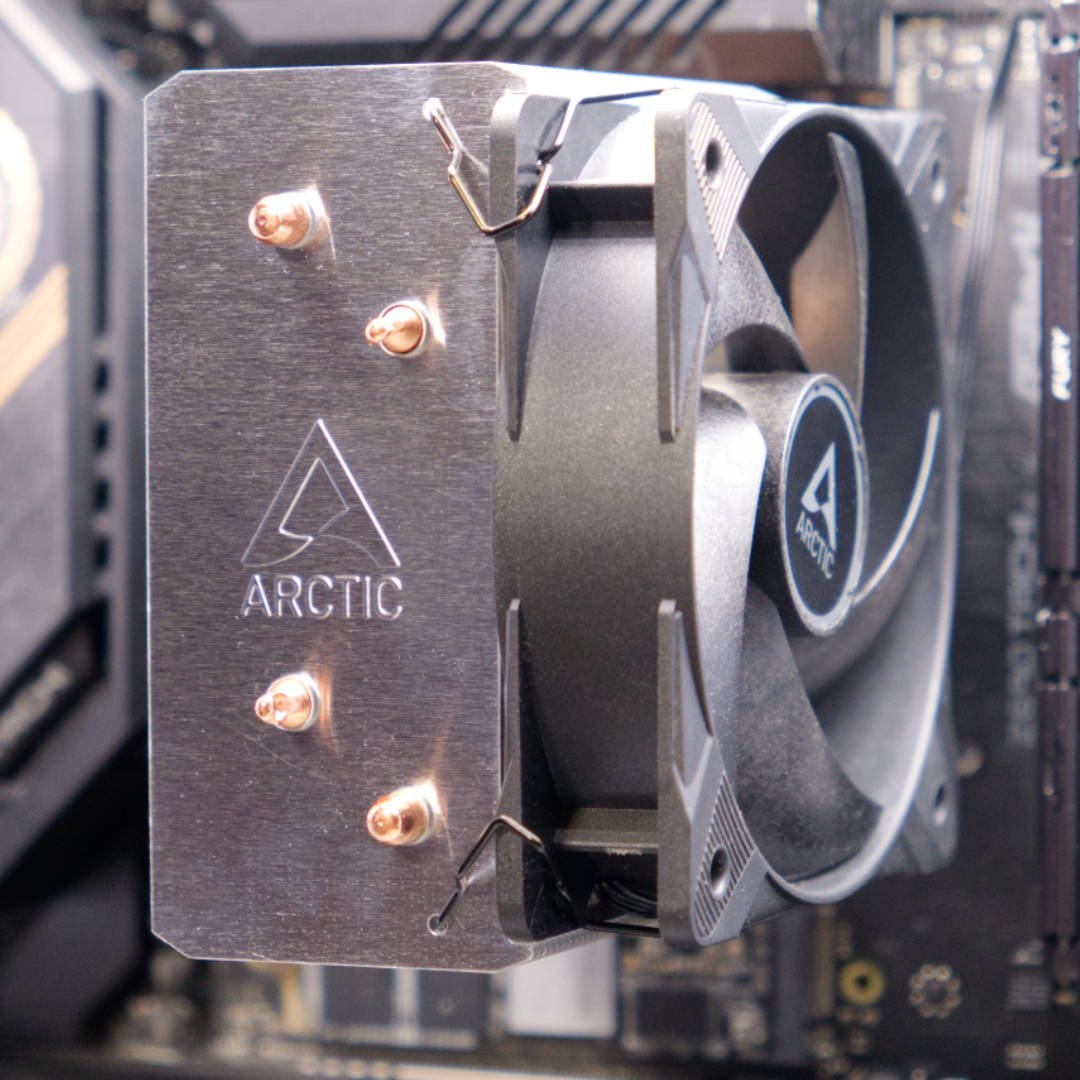
It’s not built for high-end overclocks or content creation crunch sessions, but that’s not the point. What you’re getting is a clean, compact, and near-silent cooler that’s easy to install, friendly on wallet and wattage, and more than capable of taming mainstream chips from either AMD or Intel. The fact it can hang with the likes of Pure Rock Pro 3 under a 153W load is a glowing endorsement of its design.
I’d still recommend anyone who can fit Arctic Freezer 36 in their rig and budget to splash the extra cash as it’ll give you more versatility and headroom with higher wattages. But, at just £16.49, it’s hard to argue with what’s on offer. If you’re building a budget rig, refreshing an older system, or simply want something quieter and cooler than Intel’s stock solution, Freezer 8i earns its place in your shortlist.


